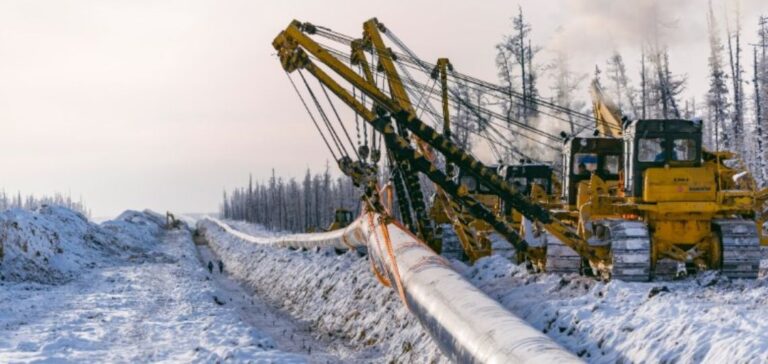Power-of-Siberia 2 will cross Mongolia. This was announced by the Mongolian Prime Minister, Luvsannamsrain Oyun-Erdene, when he announced that Mongolia would reserve part of its territory for the construction of the Russia-China gas pipeline once the two countries have reached an agreement on the costs. Gazprom plans to build the 2,600 km Power-of-Siberia 2 pipeline to supply 50 billion cubic meters of gas per year to China by 2030.
Power-of-Siberia 2 discussions are on hold
Although talks between Russia and China have been put on hold due to the war in Ukraine, the Mongolian Prime Minister has indicated that the two countries may soon resume negotiations. Once Russia and China agree on the costs, Mongolia will decide how it can use its territory to transport the gas.
With Power-of-Siberia 2, Mongolia seeks to diversify its trade and mining relations
About 80 percent of Mongolia’s total exports go to China, but the mineral-rich country is seeking to expand its trade and mining relationships beyond China and Russia. Mongolia hopes to become a bridge between Europe and Asia by discussing cooperation in the rare earth sector, copper production with German and French sites, as well as strengthening its partnership with the Republic of Korea and Japan in the private sector.
The country has begun its long-delayed underground production at the Oyu Tolgoi project, in which it has a 34% stake. The rest is held by the Anglo-Australian miner Rio Tinto. Oyu Tolgoi is expected to eventually produce more than 500,000 tons of copper per year and help Mongolia become one of the world’s largest producers of the metal.
Mongolia seeks to protect its economy from volatile commodity markets
Mining accounts for a quarter of Mongolia’s GDP and about 93% of its exports. The Mongolian government is therefore implementing reforms to protect its economy from the volatility of commodity markets. For example, it plans to create a sovereign wealth fund to hedge against volatile commodity prices, diversify its economy and invest more in infrastructure construction and logistics. The Prime Minister believes that these measures will go a long way in balancing the Mongolian economy and solving the problem of volatility.
In sum, Mongolia plays an important role in energy cooperation between Russia and China, allowing the passage of the Power-of-Siberia 2 pipeline through its territory. However, the country is also seeking to diversify its economy by expanding its trade and mining relationships beyond China and Russia, including developing partnerships with European and Asian countries in various sectors. The creation of a sovereign wealth fund will also help Mongolia cope with volatile commodity prices and invest more in infrastructure construction and logistics.






















